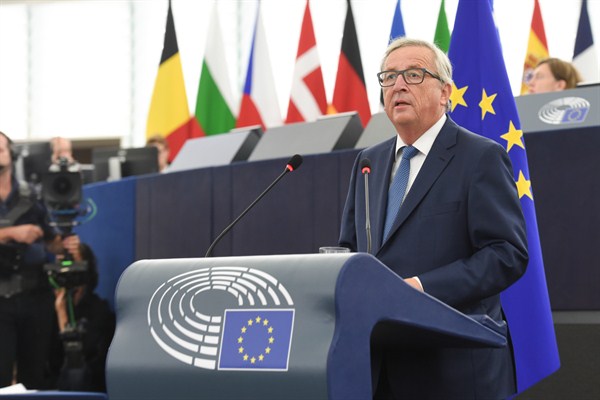Last Wednesday, at the European Parliament in Strasbourg, European Commission President Jean-Claude Juncker gave his annual State of the Union address after one of the most difficult years in the EU’s history. Between the ongoing migrant crisis, the continued rise of populism, a series of terrorist attacks and Brexit, there are many reasons to conclude that the EU is in dire straits.
“Let us all be very honest in our diagnosis. Our European Union is, at least in part, in an existential crisis,” Juncker stated in opening his speech. “Never before have I seen so much fragmentation, and so little commonality in our union.” With the bloc facing high unemployment, social inequality, public debt and security concerns, he said the next 12 months would be decisive in efforts “to reunite our union” and “to overcome the tragic divisions between East and West which have opened up in recent months.”
To bridge these divisions and move the union forward, Juncker laid out a series of policy proposals that include completing work on the so-called Capital Markets Union, which would give EU firms more diversified access to financing; a $50 billion investment plan for Africa; free wireless internet across Europe by 2020; and an EU Solidarity Corps for European volunteers under the age of 30. On the security front, Juncker outlined plans for expanding the EU border guard agency; rolling out an automated European Travel Information System to more effectively screen travelers seeking to enter Europe; and strengthening the EU’s defense policy through the creation of a single headquarters for all EU security missions as well as a European Defense Fund to “turbo boost” defense research and innovation.

